NIL
Ball State University – Official Athletics Site
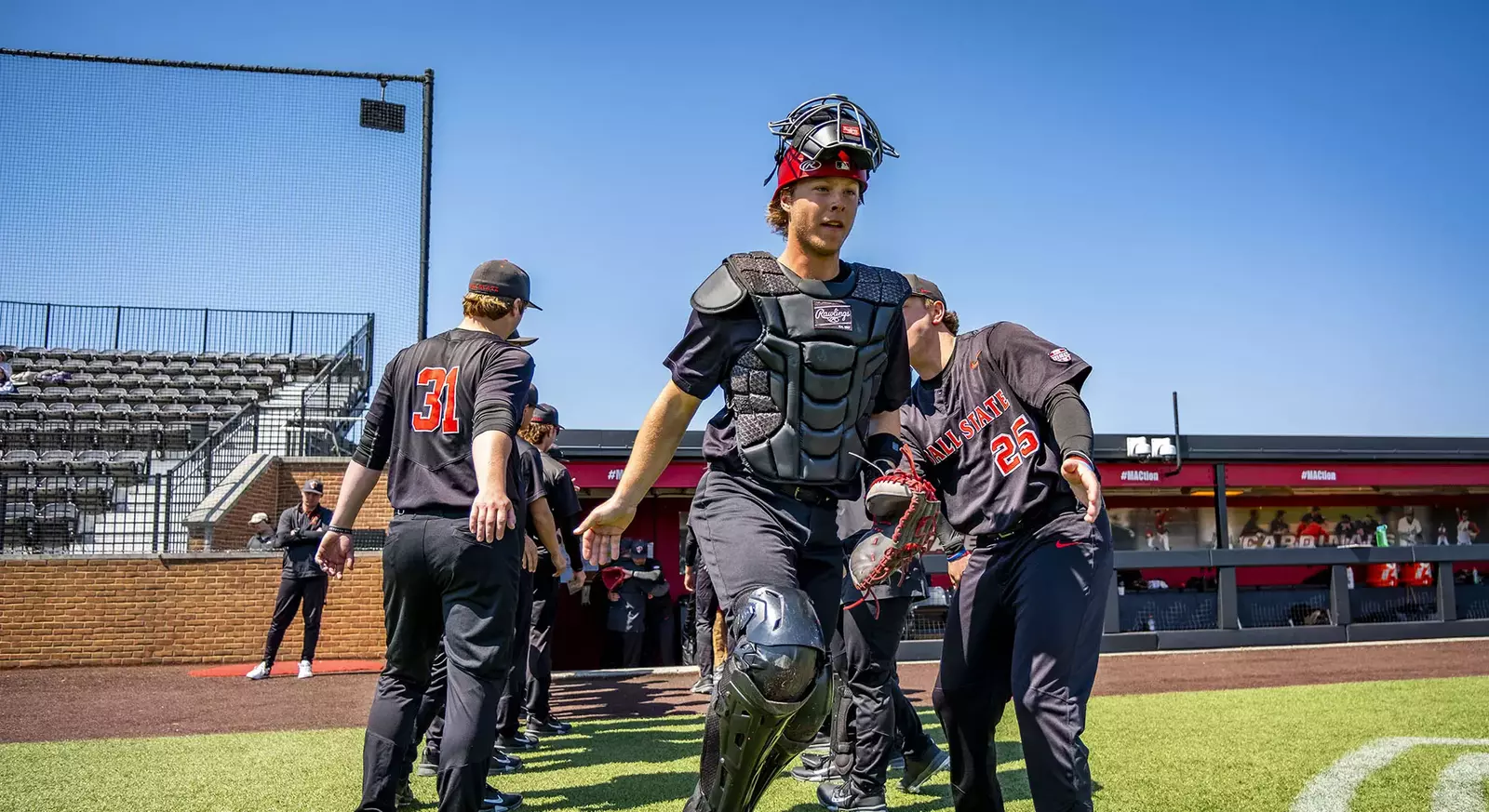
The Cardinals (32-16, 18-6 Mid-American Conference) are the only MAC team on the list, which is voted on by 32 college baseball writers and related media persons throughout the nation.
Ball State is set to play at Purdue at 6 p.m. on Tuesday.
NIL
Football Transfer Portal Chaos Continues Despite New Rules
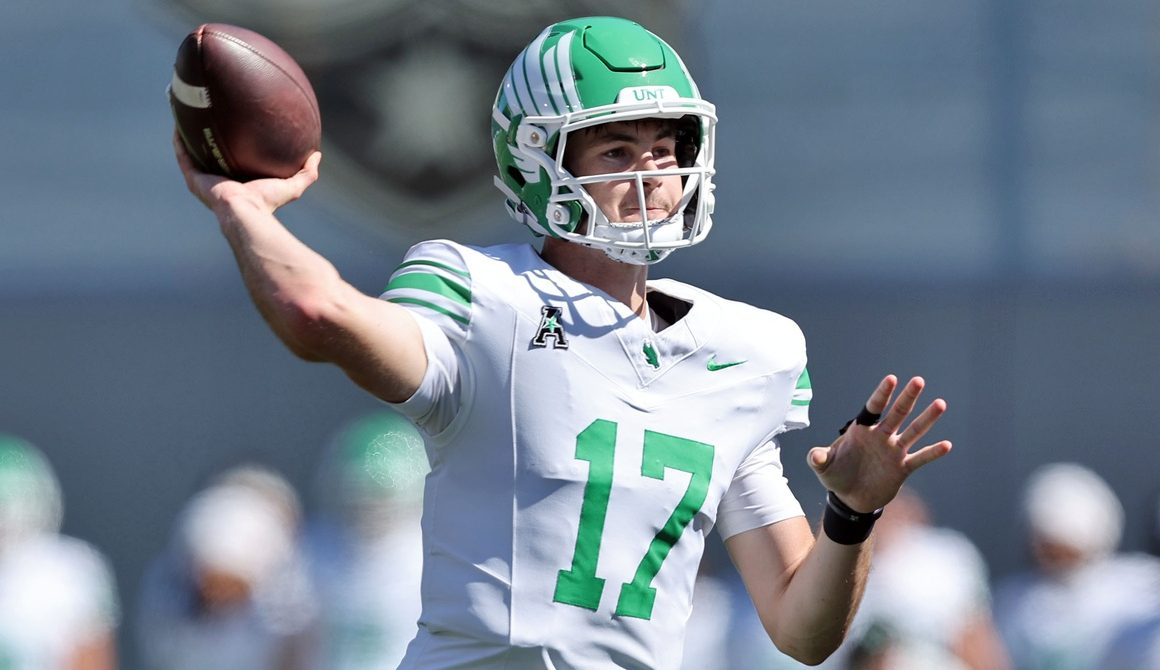
NIL
Indiana football destroys Alabama at Rose Bowl to advance to Peach Bowl
Jan. 1, 2026Updated Jan. 2, 2026, 12:20 a.m. ET
PASADENA, Ca. — The singing starts early in the fourth quarter of the Rose Bowl, where the clouds are rising above the San Gabriel Mountains and the No. 1 Indiana Hoosiers are just destroying No. 9 Alabama. This is a 2025 College Football Playoff quarterfinal, serious business, but the IU football crowd has been having a blast, and they know what to do when this stadium in Southern California starts playing Bloomington’s John Mellencamp over the loudspeakers.
NIL
Texas Tech’s College Football Playoff reality check just made a transfer QB rich
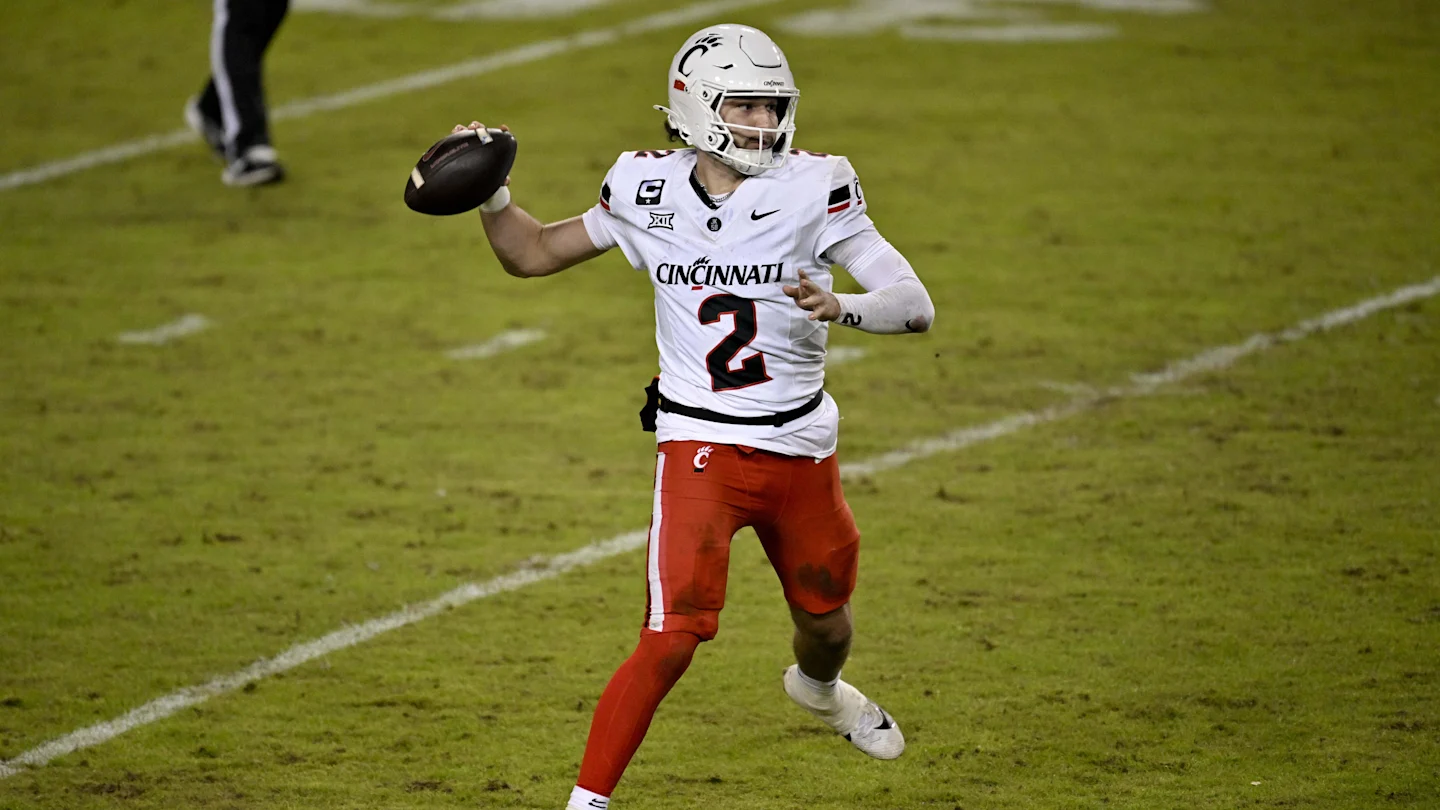
The Texas Tech Red Raiders are currently trailing Oregon 13-0 in the College Football Playoff quarterfinals, putting a loaded team on the brink of elimination. Given how bad the offense has looked for this team, the fanbase is already moving on to the offseason, as even with a comeback win in this game, Texas Tech isn’t good enough on offense to win the National Championship.
The biggest flaw with this offense seems to be the play of their quarterback, Behren Morton, who’s had a brutal day with 3 turnovers early in the 4th quarter. Given the fact that Behren Morton is out of eligibility, Texas Tech needs a new quarterback, and the fans are swinging for the fences.
Texas Tech fans are begging for Cody Campbell to pay Brendan Sorsby
On Friday, the Transfer Portal in college football will open, and Texas Tech fans are hoping that Cody Campbell and the Red Raiders spend big to continue building up this roster. The overwhelming biggest wish by the fanbase and outsiders is quarterback Brendan Sorsby.
The asking price from Brendan Sorsby to Texas Tech might be going up after that first half…
— Jordan Sigler (@JordanSig) January 1, 2026
While Oregon will advance if the score holds, everyone believes whichever quarterback Texas Tech ends up adding is the true big winner.
The Texas Tech NIL boosters are going to cut an unbelievable check for a QB upgrade this offseason, which makes someone like Brendan Sorsby an indirect winner of this Orange Bowl
— Waleed Khalid (@AnimalMan7) January 1, 2026
Texas Tech might add another zero to that NIL offer to QB Brendan Sorsby…
— Dane Brugler (@dpbrugler) January 1, 2026
The members of the media even seemingly believe that Brendan Sorsby is destined to be a Red Raider.
Overheard in the press box:
“Can they get Brendan Sorsby here by the fourth quarter?”
— Andy Staples (@AndyStaples) January 1, 2026
Cody Campbell specifically is being begged by the fans to go improve this team on offense, especially at quarterback.
Oh .@CodyC64 how much can you spend on an O-Line and Sorsby? #WreckEm
— Stacy G ❤️🖤👆🏻❤️💙 (@smgttu98) January 1, 2026
@CodyC64 please get us a QB 🙏🏽
— Alan Montoya (@alanj_montoya) January 1, 2026
Pay Sorsby any amount of money @CodyC64
— TTUMakesmesad (@TTUmakemesad) January 1, 2026
It’ll now become interesting to see where Texas Tech and Cody Campbell look to find their quarterback in the Transfer Portal. Backup QB Will Hammond showed a ton of promise, but his season ending injury may change the plans at quarterback.
Brendan Sorsby is ranked as the top quarterback in the Transfer Portal in our latest Transfer Portal Quarterback Rankings. Between his experience in the Big 12, his talent level, and the fact that his girlfriend now plays volleyball at Texas Tech, the pairing seems like a perfect fit, but both sides will need to lock the deal in.
NIL
The Transfer Portal market is exploding for college football
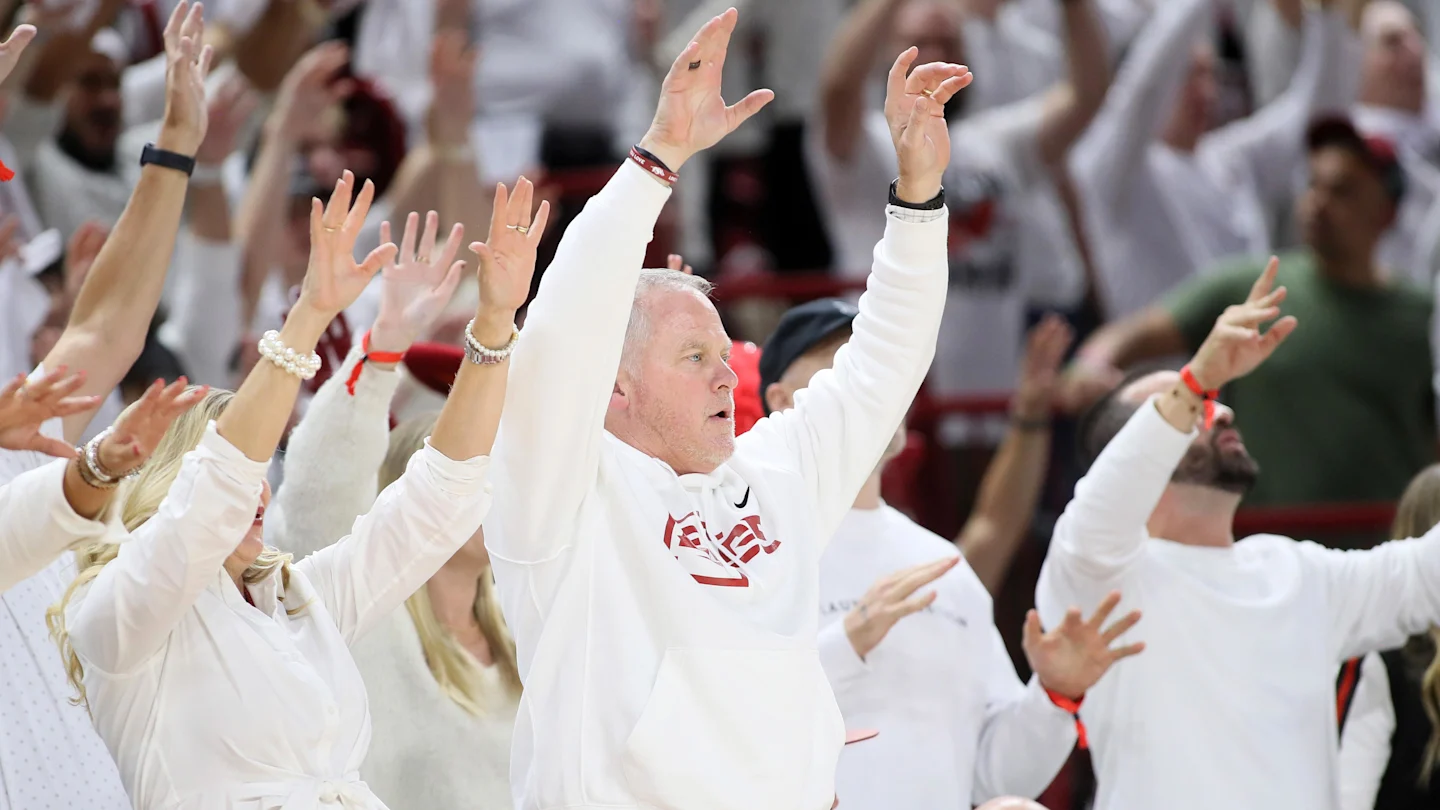
The transfer portal market is going up across the board, at every position, in every conference, and there’s little reason to believe it will slow down anytime soon. Just like professional sports, once one player gets paid, the market resets. The next wave of players measures itself against that number, believes it’s worth more, and pushes the standard even higher.
College football has officially entered that phase.
When the transfer portal opens Jan. 2, it will usher in what could be the most aggressive and expensive portal cycle the sport has ever seen. With the spring portal window eliminated in favor of a single winter period that runs from Jan. 2 through Jan. 16, the urgency has never been higher. Programs no longer have a second chance to fix mistakes, replace losses, or wait out the market.
This winter portal may look less like traditional college football and more like NFL free agency but with more chaos.
Spend Early or Miss Out
The expectation across the sport is clear: the best players will come off the board immediately and for big money. This is nothing new in the sports world because typically the services of the top players: a) in high demand and b) get contacted earlier because they dictate the market for the others after.
““People are going to spend out of the gate — like immediately — your top guys, your best guys, are going to go quick,” said a Big Ten general manager. “Then it’s the rest of them that are asking for money, but at some point they’re going to come down a little bit because the money has already been spent.””
Big Ten general manager
A year ago, there was widespread belief that this offseason would bring a correction. The passing of the House settlement, the introduction of the College Sports Commission as an enforcement arm, and the implementation of a $20.5 million revenue-sharing cap were all supposed to cool off the market.
The idea was simple: with stricter NIL oversight and limits on revenue sharing, teams could no longer double-dip between unlimited collective money and school-funded compensation. Prices, many thought, would stabilize or even decline. That hasn’t happened.
For a variety of reasons, the market has instead continued to climb. What began as college athletes not being paid at all turned into NIL opportunities based on name, image, and likeness. Now, schools themselves can directly allocate money to players, effectively paying salaries. It’s no wonder these college players are staying school longer when some get paid even more than if they were to go pro.
It’s a full 180-degree swing from where the sport was less than a decade ago.
New NIL Price of a Starter
The numbers that could come out of this cycle make that shift impossible to ignore.
““I feel like the average starter this cycle — the sort of line you have to hit — is $600,000,” said one SEC general manager. “I feel like last year starters in our conference were $300,000. Now it feels like starters are more like $600,000.””
SEC general manager
That’s not a superstar figure. That’s the baseline.
Quarterbacks, edge rushers, offensive tackles, and elite skill players are pushing well beyond that number. Depth players are commanding deals that would have qualified as “starter money” just one cycle ago. Every position group is affected, and every negotiation starts from a higher floor.
Arkansas Can’t Afford to Fall Behind
Arkansas football has reached a crossroads. New head coach Ryan Silverfield and athletic director Hunter Yurachek have both spoken publicly about the importance of having the necessary NIL resources to build and sustain a competitive roster.
Words are a start, but action has to follow.
Yurachek doesn’t have to write the checks himself, but he does have to empower the coaching staff, the collective, and the infrastructure to compete at market value. If the administration hesitates or tries to bargain-shop in a luxury market, the results will be the same as they’ve been in recent years.
Fans are tired of hearing about rebuilds. They’re tired of moral victories and patience speeches while watching other programs buy instant turnarounds. The numbers are public now. The quotes are out there. The direction of the market is undeniable.
The transfer portal isn’t a temporary phase, it’s officially the backbone of roster construction moving forward and beyond. And with prices only going up, programs either commit fully or risk falling into the abyss.
NIL
Curt Cignetti contract clause takes effect after Indiana’s College Football Playoff semifinal berth
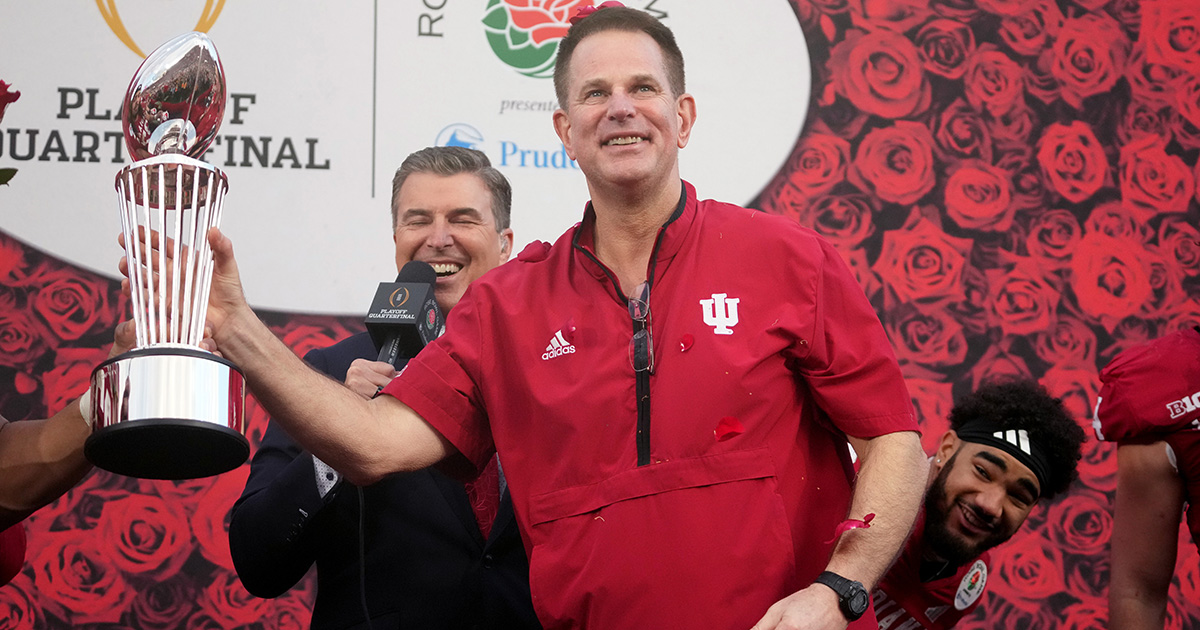
With Indiana’s resounding victory over Alabama in the Rose Bowl, Curt Cignetti triggered a bonus in his contract. But there’s another clause that took effect as the Hoosiers head to the College Football Playoff semifinals.
Cignetti’s new eight-year, $93 million deal at Indiana – which the two sides announced in October 2025 – includes a Good Faith Market Review clause. It states if IU makes the CFP semifinal, the school must discuss a renegotiated contract with Cignetti that would bring his annual compensation to nothing less than the third-highest paid coach in college football.
SUBSCRIBE to the On3 NIL and Sports Business Newsletter
For reference, Cignetti’s salary went up to $11.6 million when he signed his new contract at Indiana. That currently puts him at No. 4 among the nation’s highest-paid coaches after Lane Kiffin agreed to a deal that will pay him $13 million at LSU. Kiffin’s salary is just behind Georgia coach Kirby Smart, who’s the highest-paid coach in the country at $13.3 million, and ahead of Ohio State’s Ryan Day at $12.6 million.
According to the contract, Cignetti and Indiana have 120 days after the CFP semifinal to agree to the good faith review and negotiation. If the two sides don’t come to terms on a deal to make Cignetti no less than the third-highest paid coach in the country, “the University agrees to waive for the remaining Term of this Agreement any liquidated damages which would be due from Coach to the University should he subsequently terminate his employment at the University.”
In short, if the two sides don’t agree to those terms, Cignetti would not owe Indiana anything if he chose to leave for another job. For reference, he would owe $15 million if he was to resign to take a different coaching job before May 2026.
Curt Cignetti triggers bonus with Rose Bowl win
As part of the new deal, which took effect Dec. 1, Curt Cignetti also triggered multiple bonuses through Indiana’s College Football Playoff run. The Hoosiers’ sixth Big Ten victory secured a $150,000 bonus and he earned $1 million for winning the conference championship in addition to the $50,000 for becoming the league’s Coach of the Year.
Cignetti also had CFP bonuses in the deal, though they are not cumulative. With Thursday’s win against Alabama, he is set to earn $700,000 for making the semifinal round, and that figure would increase to $1 million if Indiana appears in the national championship. A victory in the title game would net Cignetti a $2 million bonus.
Indiana’s victory over Alabama continued Cignetti’s historic turnaround in Bloomington. The Hoosiers are now 14-0 this season and 25-2 under his watch as they get ready to take on Oregon.
NIL
New Arkansas football GMs rise up the ranks in College Football’s new era
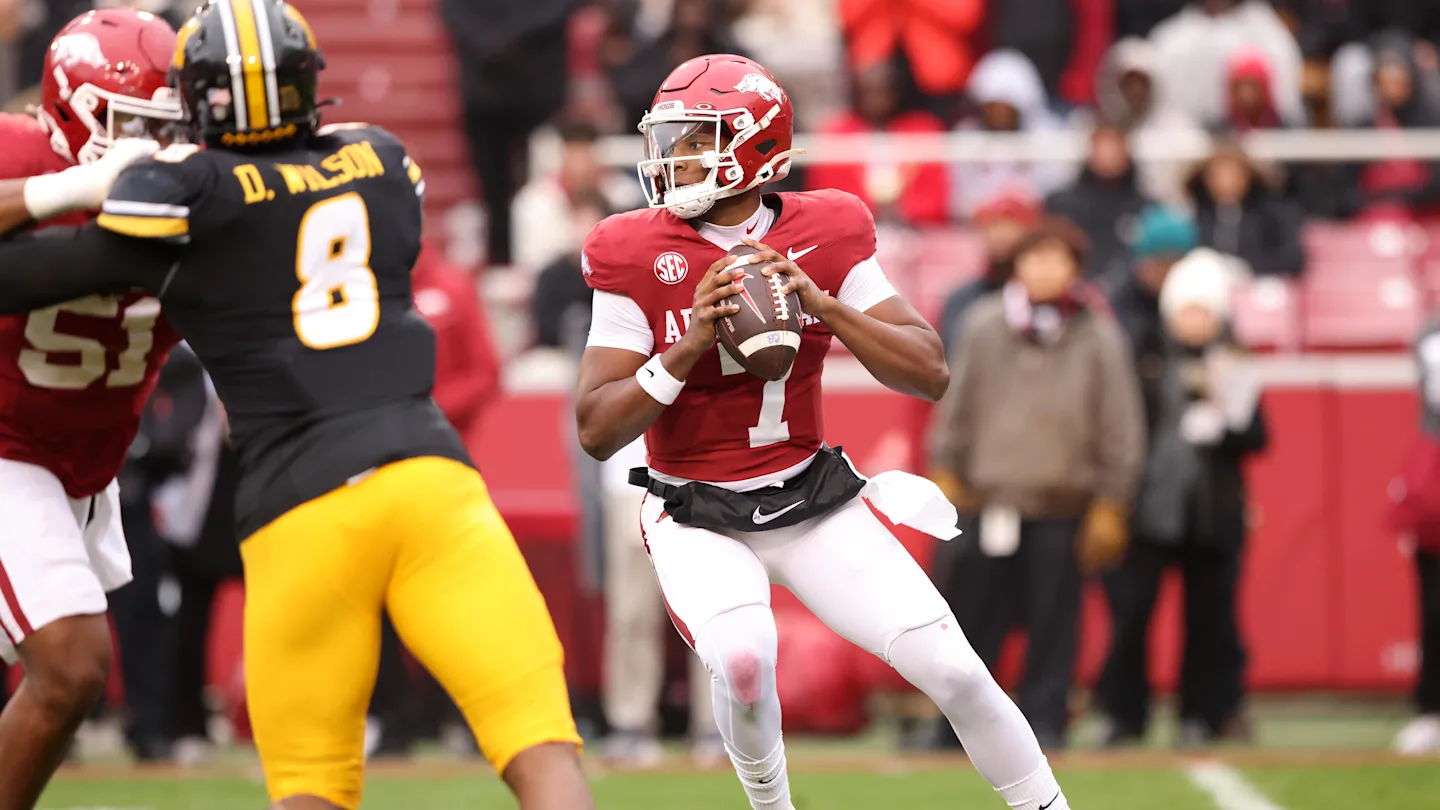
Few people in college football personnel can say they’ve experienced the sport from nearly every possible angle. Arkansas ‘ new general manager Gaizka Crowley is one of them.
Gaizka Crowley’s Journey
Crowley’s journey to the SEC is a testament to adaptability, persistence, and a deep-rooted passion for roster construction. A Florida State graduate, Crowley began his football career coaching high school football in Florida before working for the scouting and analytics service XOS Digital (now Catapult). From there, his path wound through the FCS ranks at Southern Illinois, Group of Five programs in the Mountain West at UNLV and the MAC at Western Michigan, the Power 4 level in the Big 12 at Arizona, and now to the SEC as the newly appointed general manager for the Arkansas Razorbacks under first-year head coach Ryan Silverfield.
In an era where college football personnel roles have rapidly evolved, Crowley has quietly become one of the most respected names in the profession. Roster construction has been his passion since his early days, where he was known as a detail-obsessed, X’s-and-O’s guy who loved fitting pieces together like a jig-saw puzzle and making everything sync together almost like being the operator for a symphony. In todays age, those puzzle pieces come with price tags, NIL valuations, and salary-cap-style allocation decisions that raise the stakes considerably.
What separates Crowley is how seamlessly he has adapted. He didn’t just understand schemes and player fit; he learned how to balance those football instincts with financial strategy in the modern era. Managing resources, allocating money, and maintaining roster flexibility are now as critical as identifying talent, and Crowley has shown he can thrive in both worlds.
That adaptability was on full display during his time at Arizona. While running personnel for the Wildcats, Crowley helped construct one of the nation’s most dramatic turnarounds in 2025. Arizona jumped from a 4–8 record in 2024 to 9–3 the following season, a transformation fueled by smart roster decisions and efficient talent evaluation. When head coach Jedd Fisch departed for the Washington job, Crowley didn’t dwell on uncertainty or excuses. He went straight to work, adjusting to the coaching change, identifying the right pieces, and empowering the staff to succeed. This sounds very similar to the situation he’s presented himself with in Fayetteville.
Despite the growing administrative demands of his role, Crowley has remained grounded in the habits that got him there. His days are filled with constant communication, problem-solving, and long-term planning, but he still carves out time, early mornings or late nights, to shut his office door and grind film just because he loves doing it.
““It’s important, no matter what your role is — but especially as you get to a more senior level — to not forget what got you there,” Crowley said. “Make sure you carve out the time to watch the tape.””
Gaizka Crowley
How Crowley Fits in with Arkansas Football
That blend of old-school film study, modern roster economics, and humility defines Crowley’s approach. Now, he brings that mindset to Arkansas, a program hungry for sustained success after years of instability. Since Bobby Petrino’s first tenure, the Razorbacks have cycled through coaches and directions, never quite recapturing consistent national relevance.
Crowley’s task is clear but demanding: help Ryan Silverfield rebuild Arkansas football with purpose, patience, and precision. If his track record is any indication, he won’t waste time. With his ability to evolve alongside the sport, manage the new financial realities, and stay grounded in the fundamentals of evaluation, Crowley is well-equipped for the challenge. Can lightning strike twice and can he replicate the same instant results he did during his time with Arizona? Hogs fans sure hope so.
From the FCS grind to the SEC spotlight, Gaizka Crowley’s rise reflects college football’s new era and Arkansas is betting that his unique perspective can help bring Razorbacks football all the way back.
-
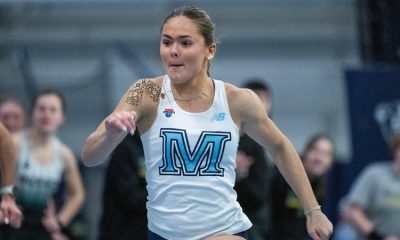
 Sports3 weeks ago
Sports3 weeks agoMaine wraps up Fall Semester with a win in Black Bear Invitational
-

 Motorsports2 weeks ago
Motorsports2 weeks agoRoss Brawn to receive Autosport Gold Medal Award at 2026 Autosport Awards, Honouring a Lifetime Shaping Modern F1
-

 NIL3 weeks ago
NIL3 weeks agoNike Signs 10 LSU Athletes to NIL deals
-

 Rec Sports2 weeks ago
Rec Sports2 weeks agoStempien to seek opening for Branch County Circuit Court Judge | WTVB | 1590 AM · 95.5 FM
-

 Rec Sports2 weeks ago
Rec Sports2 weeks agoPrinceton Area Community Foundation awards more than $1.3 million to 40 local nonprofits ⋆ Princeton, NJ local news %
-

 NIL3 weeks ago
NIL3 weeks agoMeet The Two Oregon Freshmen Ready To Make Ducks History Under Dan Lanning
-

 NIL2 weeks ago
NIL2 weeks agoKentucky AD explains NIL, JMI partnership and cap rules
-
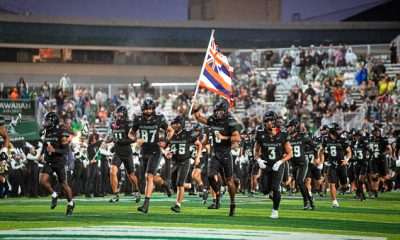
 NIL2 weeks ago
NIL2 weeks agoDowntown Athletic Club of Hawaiʻi gives $300K to Boost the ’Bows NIL fund
-

 NIL3 weeks ago
NIL3 weeks agoHere’s what Trump has to say about NIL in college sports
-
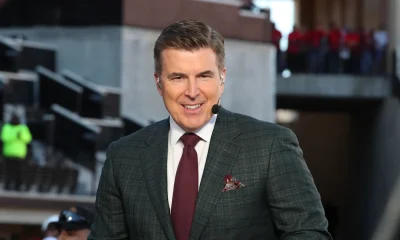
 NIL3 weeks ago
NIL3 weeks agoRece Davis names former Pac-12 coach who should be top candidate for Michigan head coaching job

































